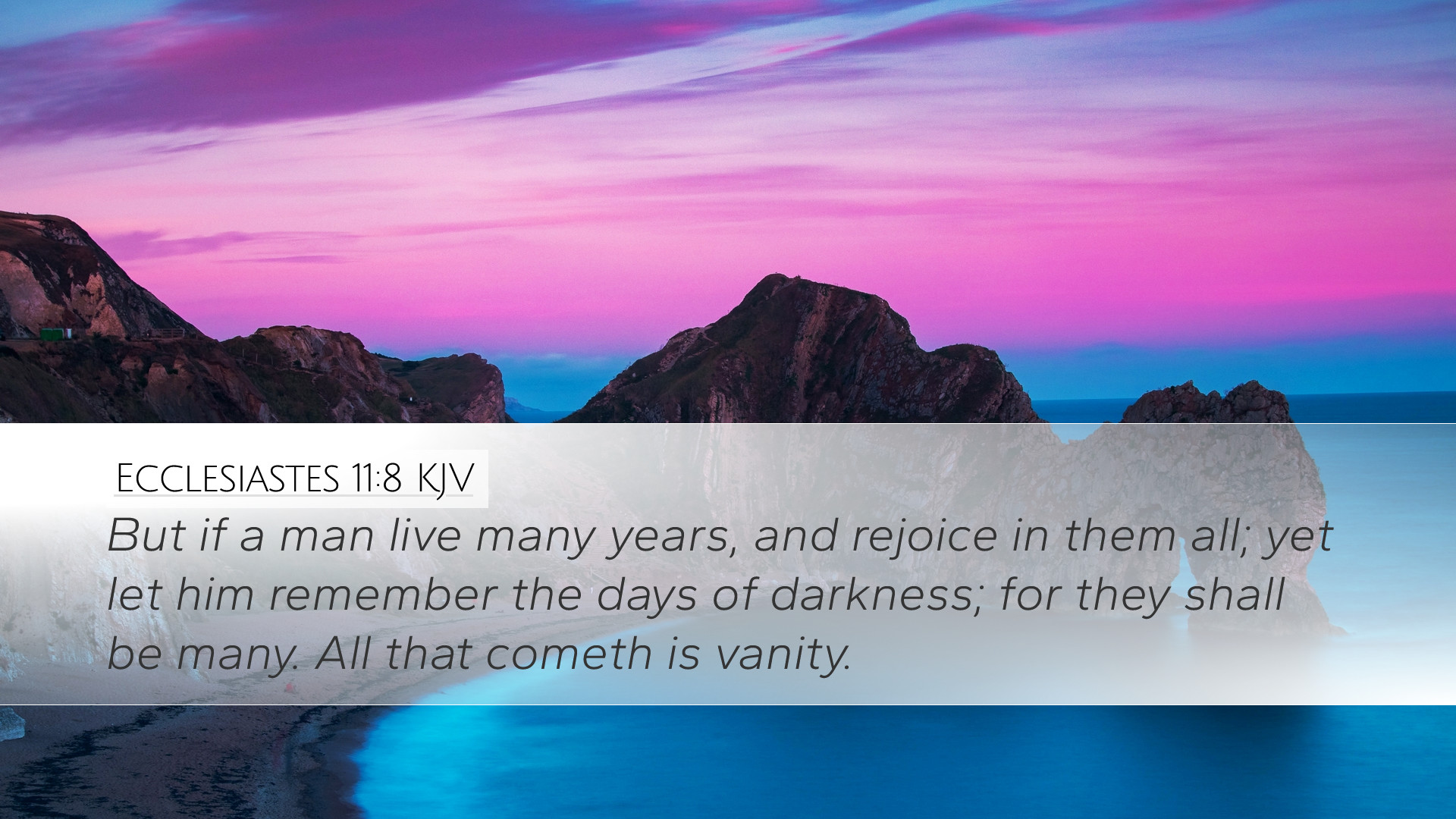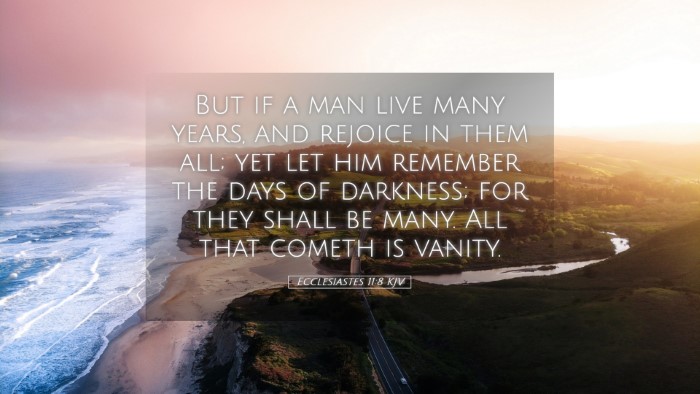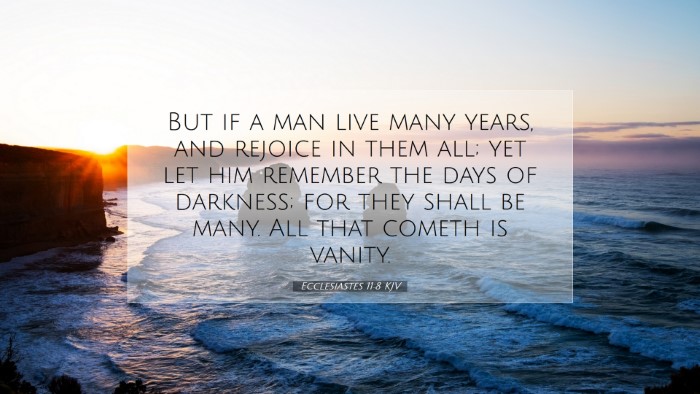Old Testament
Genesis Exodus Leviticus Numbers Deuteronomy Joshua Judges Ruth 1 Samuel 2 Samuel 1 Kings 2 Kings 1 Chronicles 2 Chronicles Ezra Nehemiah Esther Job Psalms Proverbs Ecclesiastes Song of Solomon Isaiah Jeremiah Lamentations Ezekiel Daniel Hosea Joel Amos Obadiah Jonah Micah Nahum Habakkuk Zephaniah Haggai Zechariah MalachiEcclesiastes 11:8
Ecclesiastes 11:8 KJV
But if a man live many years, and rejoice in them all; yet let him remember the days of darkness; for they shall be many. All that cometh is vanity.
Ecclesiastes 11:8 Bible Commentary
Commentary on Ecclesiastes 11:8
Ecclesiastes 11:8 (KJV): "But if a man live many years, and rejoice in them all; yet let him remember the days of darkness; for they shall be many. All that cometh is vanity."
Introduction
The book of Ecclesiastes is often focused on the nature of life, the inevitability of death, and the fleeting nature of joy and wealth. In chapter 11, the author reflects on the balance of life experiences, urging the reader to consider both the joys and the sorrows that are inherent to the human experience.
Verse Analysis
This verse captures the essence of a reflective life. It encourages an individual to relish in their joyful experiences, even as it acknowledges the presence of inevitable dark days. This balance is crucial for a godly perspective on life.
Life and Longevity
Matthew Henry expresses that many years of life should be filled with thanks and joy. He notes that living a long life does not exempt one from experiencing trials and adversities, and indeed, understanding the brevity of life is essential for appreciating its joys.
Rejoicing in Life
Albert Barnes suggests that the call to rejoice is part of an encouragement to live life to the fullest, recognizing that enjoyment is a gift from God. He points out that this joy must be tempered with the acknowledgment of life’s hardships, which comprise part of the human condition.
The Days of Darkness
Adam Clarke elaborates on the phrase “days of darkness,” emphasizing that these represent not only personal sorrows but also the collective experience of humanity. Clarke asserts that wise individuals remember that life's joyful moments are often overshadowed by darker times, calling for a sober view of reality.
Theological Implications
Reflecting on Ecclesiastes 11:8, several theological points emerge:
- The Duality of Experience: Life consists of both joy and sorrow. Christians are reminded that both are part of God's sovereignty over human life.
- The Call to Gratitude: The verse encourages an attitude of gratitude, recognizing joy as a divine blessing amidst trials.
- Eschatological Perspective: The acknowledgment of “days of darkness” may lead one to consider the hope found in Christ, providing a lens through which suffering is seen as both transient and part of God’s greater plan.
Practical Applications
For believers, understanding Ecclesiastes 11:8 can lead to several practical applications:
- Live Intentionally: Approach each day with purpose, seeking joy in all aspects of life, including relationships, work, and spirituality.
- Prepare for Trials: Embrace the reality that trials will come, and anchor oneself in faith to face these challenges with grace and strength.
- Promote the Importance of Community: Encourage fellowship and support among believers, understanding that mutual support can help navigate both joyful and dark days.
Conclusion
Ecclesiastes 11:8 serves as a profound reminder of the complexity of life. It encourages individuals to rejoice in the blessings of life while maintaining a realistic understanding of the struggles that accompany it. As pastors, students, theologians, and scholars reflect on this verse, they are invited to deepen their understanding of God’s purpose within the fabric of human experience, seasoning their lives with joy while remaining grounded in the truth of scripture.


